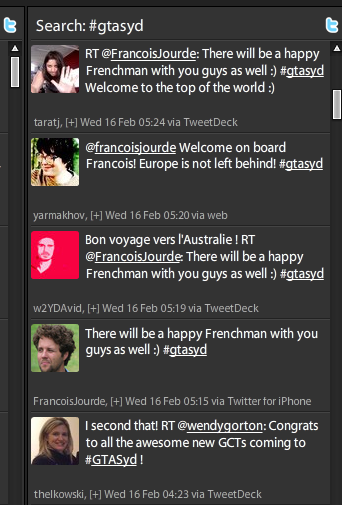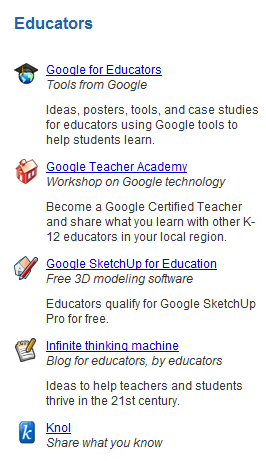Point Lonsdale rockpools – photo by Alexander Sheko
A while ago I was asked to contribute an article to FYI. The brief was – describe your journey to becoming a Google Certified Teacher.
I’ve had a lot of trouble writing this article, and I’ve edited many drafts before finally submitting something with which I am half pleased. It’s frustrating writing a print article for many reasons. You can’t hyperlink which means you have to explain everything in greater detail and include a set of links at the end. You wonder who your readers will be, and you know you won’t get any feedback.
And so, since this is the platform I feel comfortable to use for self-expression and sharing, I’ve copied my article into a post and hope to hear from some of you. Do you feel the same way about social media and networking or do you feel differently? Your feedback is always valuable to me.
It was a once in a lifetime opportunity which connected me not only to experienced Google educators but also to a fantastic cohort of passionate, innovative people who are now part of my learning network.
Opportunities seem to present themselves out of the blue when in fact they don’t. You have to be somewhere in order to see the opportunities. Those who attended the one and a half days of professional development and became Google Certified Teachers had already been connecting and sharing online through blogs, Twitter, Facebook, Diigo, Delicious and other social media. Of course there are many people out there who are doing the same and deserved to join the GCT cohort but weren’t chosen and the reason for this I leave up to the gods.
I look back to see a pattern of behaviour rather than a set of skills which led me to discovering the Google Teacher Academy opportunity – I am a learner, and technology and social media are my enablers.
“Participants were selected based on their professional experience, their passion for teaching and learning, and their successful use of technology in school settings.”
I think when we say ‘teaching and learning’ we should stop and think about the learning part of that dynamic partnership which makes us good educators. Yes, it’s about students’ learning, but more importantly, it’s about our own learning and our continued learning.
We can’t successfully teach our students if we are still the learners we were when we completed our teaching degree. To keep up with the world of our students and the future world of their work we need to immerse ourselves in the technology which enables today’s learning. But not technology for technology’s sake.
Howard Rheingold said (in Robert Heyden’s blog post)
that learning should be learner-centred, social and peer-to-peer and networked. He said that
“students are going to live and work socially and yet the methods and the literature of social learning are not being used.”
We teach most effectively when we experience something for ourselves. It’s not good enough to push aside the technology which makes us feel uncomfortable or decide we have no time to participate in social media. We don’t need to do more, we should just do things differently.
Social media is a great enabler. Once I started blogging I connected to people with similar roles and interests, expanding my ‘friendship’ and ‘colleague’ base, but I also followed people with varied interests and expertise, as well as those who challenged me with diverse viewpoints. Technology allows us to transcend barriers of location, culture, age, class, race, gender, and educational level. How wonderful to connect with and learn from keynoters and change agents like Will Richardson, Howard Rheingold and Joyce Valenza.
Social media is an equalizer. It democratizes people. I admire Howard Rheingold and his writings but I am unlikely to see him in person. I can, however, read what he’s written, see what he’s reading, follow what he’s thinking, discover who he’s talking to – on Twitter, Delicious and Google+. I have the opportunity to communicate with great minds and forward thinkers. My opinion is heard – it counts; people respond and relationships are formed. If I don’t know how to do something, I ask and receive help. Social media reduces isolation and frustration and quickly answers questions, solves problems.
So, if opportunities such as GTA are a result of specific patterns of behaviour, what does this routine look like?
,
Every morning before school I check Facebook (which is blocked at school) and pull out news and resources which come to me once I’ve followed organisations. These include VicPLN, Australia e-series, Facing IT, iCentre, Internet Public Library, Maths TV, National Gallery of Victoria, Metropolitan Museum of Art, Folger Shakespeare Library, Smithsonian Libraries, Tate, The Wheeler Centre for Books, Writing and Ideas, Virtual Museum of Canada, Solomon R. Guggenheim Museum and many more. This works like an RSS feed for me, but it’s only one of many. I also read a wide range of blogs in Google Reader, discover what others are reading in my Diigo and Delicious communities, and interact with my Twitter and Google+ networks. If this seems like too much, it’s worth noting that I have the choice to do these things selectively.
If I were to give advice for building meaningful online networks I would say:
Don’t just find, but also explore for serendipitous encounters;
Start with one type of network (eg Twitter, RSS, etc) and closely follow a few people, engaging in conversation and discovering people in their networks;
Don’t just use Google – search Diigo, Delicious, Vodpod to find expertise in areas that interest you;
Share generously what you find and create, encourage and support, respond to and ask engaging questions;
Revise your networks regularly to keep them relevant and vibrant;
Share what you do as well as your reflections and evaluations;
Be real – even online people can detect superficial or insincere interaction.
Admittedly, the global curricular focus of teacher librarians is one of the reasons that we are amongst the best participators in social media, and the teachers’ focus on content delivery and assessment can be a deterrent. Nevertheless, I make a considerable effort to model and demonstrate the fruits of social networking with the hope of inspiring others.
As Howard Rheingold says of this type of connected learning (which applies to us as well as students)
“It’s the unpredictable synergy that can happen when a group of strangers assembles online to learn together.”






 Not sure what happens here
Not sure what happens here